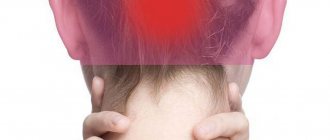body .attr-article__date{ background: none; padding: 0; }
NEAD EAD SEAD South Administrative District South-Western Administrative District CJSC Central Administrative District SZAO Northern Administrative District 01 02 03 05 06 07 08 09 1 0 1 1 1 2 14 18 15 16 17 Babushkinskaya Prospekt Mira Pervomaiskaya Baumanskaya Paveletskaya Teply Stan Shipilovskaya Prague Academic University Barrikadnaya River Station Oktyabrskoye Bratislava Taganskaya Academician Yangelya October Field
The call center is open 24 hours a day
Ambulance 24/7
Date of publication: 04/01/2016
until October 31
We're giving away RUR 1,000 for all services per visit in October More details All promotions
Vomiting is a reflex eruption of stomach contents through the mouth. Sometimes attacks of vomiting are observed against the background of a rise in temperature.
More about vomiting
Causes of high fever, nausea, headache
This set of symptoms can appear even in a person without any diseases. Nausea, headache, temperature up to 37 degrees occur during severe fatigue, stress, nervous or physical tension. In addition, these signs are characteristic of heat stroke. They pass in a few days, provided proper rest. However, these symptoms may also indicate more dangerous disorders that require treatment, medications and regular examinations by a doctor.
Diseases of the gastrointestinal tract
Fever, nausea, and headache are typical signs of inflammatory diseases of the stomach and intestines. They are also accompanied by abdominal pain, indigestion, and intolerance to certain foods. There are several main diseases that are often diagnosed in patients of any gender and age.
- Gastritis is inflammation of the gastric mucosa. The disease can occur in acute or chronic form. Its main cause is considered to be the opportunistic bacterium Helicobacter pilori; other pathogens can also be detected. Inflammation develops as a result of poor nutrition, impaired secretion of gastric juice, as well as long-term systematic intake of alcohol and certain medications. When the cause is eliminated, gastritis goes away without consequences.
- Gastric ulcer is a consequence of frequent exacerbation of gastritis, improper and irregular nutrition, taking certain groups of drugs (non-steroidal anti-inflammatory drugs), as well as increased secretion of gastric juice. Defects appear on the mucous membrane and increase in size. Without timely treatment and adherence to a diet, the ulcer may perforate with the formation of a defect in the stomach wall and the release of its contents to the outside.
- Crohn's disease is a chronic disease whose cause remains unknown. It affects the mucous membrane of certain areas of the large, less often small, intestine. During the diagnosis, inflammation of the mucous membrane, the appearance of ulcers and neoplasms, and narrowing of the intestinal lumen are detected. Treatment is symptomatic and surgery may be required to remove the affected area.
Diseases of the stomach and intestines require timely treatment. They quickly become chronic and progress. The doctor will determine the cause and stage of the disease and prescribe a treatment regimen. In most cases, a gentle diet is prescribed, in which it is recommended to eat food in small portions. Fatty, sweet, flour and fried foods, as well as offal, should be completely excluded from the diet.
Infectious diseases
A simple seasonal cold, ARVI, is a common occurrence. They are associated with a decrease in the body's immune defense during the off-season, bad weather conditions and a deficiency of vitamins in the diet. When you have a cold, you have a headache, nausea, the temperature rises to 37 degrees or more, and general weakness appears. However, these symptoms last no more than a week. Rest, bed rest, and drinking plenty of fluids helps you quickly return to normal.
Infections that affect the digestive tract pose a great danger to humans. These diseases occur with signs of nausea, vomiting, and general weakness. There are several diseases that can be contracted by consuming poorly washed vegetables and fruits, low-quality products, and contaminated water.
- Rotavirus infection – also called stomach or intestinal flu. The disease occurs with general weakness, fever, nausea, and can manifest itself in an acute form. In most cases, treatment takes place at home, but hospitalization may be required.
- Salmonellosis is a disease caused by the Salmonella bacterium. Infection often occurs when eating meat and eggs that have not been heat-treated. The infection causes severe pain in the head and stomach, nausea and vomiting. After confirmation of the diagnosis, the patient is placed in an infectious diseases hospital and treated with antibiotics.
- Botulism is a dangerous disease caused by a bacterium. In the human body, it releases toxins that cause severe pain, nausea and vomiting, weakness and fever.
- Clostridiosis and staphylococcosis are no less dangerous toxic infections that occur with similar symptoms. They affect the mucous membrane of the digestive tract, and toxins cause general weakness and poor health. Treatment takes place in a hospital.
Infectious diseases are characterized by an acute onset. Nausea, vomiting, and headache occur abruptly, but in some patients the clinical picture increases gradually. It is important to consult a doctor and begin treatment at the first symptoms in order to reduce the risks to the body and the likelihood of complications.
Parasite infestations
Helminths are parasitic worms that enter the body with water or food and can be found on environmental objects. After entering the body, they go through a development cycle and multiply. Their waste products are toxic to humans, so helminthiases are accompanied by nausea, vomiting, and general weakness. In addition, a large accumulation of parasites in the intestinal lumen is dangerous due to rupture of its wall.
To confirm the diagnosis it is necessary to undergo tests. Blood, feces or other liquids are used as research material. It is important to pay attention to the first symptoms indicating the appearance of helminths, including:
- sudden weight loss without changing your diet;
- frequent attacks of nausea;
- pain in the head and stomach;
- slight increase in temperature;
- pallor of the skin and mucous membranes, possibly a yellowish tint.
It is important that helminths can live not only in the human gastrointestinal tract. Some representatives affect the liver, lungs, heart, and can migrate with blood and lymph. The smallest ones affect blood cells and cause their destruction. Treatment is prescribed individually, depending on the type of parasite and the degree of invasion. The scheme includes several stages, during which the patient needs to take specific drugs, and then - means to restore normal microflora.
Brain diseases
Fever, nausea, weakness, headache - these signs can be a signal of various brain diseases. They are based on inflammation or mechanical compression of tissues, as a result of which the innervation of certain parts of the body is disrupted. These are dangerous disorders that require treatment in the early stages - this is the only way to prevent dangerous consequences.
- Meningitis is an inflammation of the lining of the brain. The disease has a viral or bacterial origin, less often it is caused by fungi. Fever and headache are the first symptoms for which it is important to immediately consult a doctor. Treatment takes place in a hospital, with the use of antibiotics and drugs to improve blood circulation in the brain.
- Encephalitis is inflammation of the brain. The process develops when exposed to infectious agents and can manifest itself in polio, rabies, smallpox and other diseases. Encephalitis can also be caused by bites from infected ticks. The disease is particularly dangerous and can be fatal. At home, you can prevent it by treating blood-sucking insects and timely vaccination.
- Stroke is an acute disorder of cerebral circulation. It can be caused by insufficient blood supply to brain cells (ischemia) or rupture of a vessel with the formation of a hematoma. The first symptoms may be slight weakness, headaches, nausea, but the condition is life-threatening. The chances of full recovery are especially high if you see a doctor in the first 2 hours after the attack.
- Traumatic brain injuries are the reason why fever, nausea and headache bother a person even after a long time.
Symptoms of inflammatory diseases of the brain appear sharply and immediately cause an acute clinical picture. Headache and nausea do not go away even after taking medications, and only get worse over time. Doctors at the Clinical Institute of the Brain warn: the effectiveness of treatment depends on the timeliness of first aid. Otherwise, there may be irreversible disruption of many brain functions and death of nerve tissue.
Poisoning
Intoxication of the body with food, alcohol and medications, as well as various gaseous substances is a dangerous condition. Toxins penetrate the bloodstream and quickly spread throughout organs and tissues. The patient’s well-being deteriorates immediately, within several hours after exposure to toxic compounds. The clinical picture of poisoning includes the following symptoms:
- nausea and vomiting;
- acute headache, dizziness, fainting;
- indigestion, diarrhea;
- pallor of the mucous membranes;
- possible increase in temperature;
- arrhythmias, increased heart rate.
In case of poisoning with certain substances, you can use antidotes. These are compounds that neutralize the effects of toxins and promote rapid improvement in well-being. However, for most types of poisoning there are no antidotes. Treatment consists of drinking plenty of fluids, fasting, and drips of electrolyte solutions. These measures will restore normal blood balance and reduce the concentration of toxic substances.
Other reasons
Deterioration in well-being can be caused by various factors. Nausea, fever, headache indicate various inflammatory processes, disruptions in the functioning of various organs and systems. It is important to pay enough attention to diagnosis to determine the exact cause of deterioration in health. Additional tests may show the following disorders:
- increased blood pressure - in the chronic form, attacks can be triggered by stress, fatigue, and changes in weather conditions;
- diseases of the inner ear - labyrinthitis, Meniere's disease and other pathologies are manifested by acute headache, hearing impairment, and possible discharge from the ear canal;
- disorders of the thyroid gland - they can be determined by the results of blood tests;
- migraine - the disease manifests itself as attacks of headache, which are associated with cerebrovascular insufficiency.
Headache, nausea, deterioration in health, fever are common symptoms that can occur in the absence of any diseases. They often occur in the warm season, as a result of heat stroke. After prolonged exposure to the open sun, a person’s temperature rises and weakness appears. It is important to monitor your well-being in the summer and protect your head and skin from direct sunlight.
Fever, vomiting, abdominal pain...
Date of publication: August 07, 2021. Category: News.
Summer is the time for vacations and holidays. It is understandable that parents want to pamper their children with fresh vegetables, fruits and berries from the garden, and take them for a swim at the nearest body of water. But the joy of communicating with nature can be overshadowed by an enterovirus infection.
The beginning of the epidemic rise of this disease, as a rule, occurs in June, and the peak occurs in August-September. Last year, 14 cases of enterovirus infection were registered in the area (4 cases of gastroenteritis, 10 cases of herpangina). In the region, 481 such cases were registered, of which 459 cases were in children.
“A common symptom for all types of this infection is fever and a sharp increase in temperature, which usually lasts for 3-5 days,” says E.V. Vasilyeva, an infectious disease specialist at the district hospital. - If the infection is intestinal, the child will have abdominal pain, diarrhea and vomiting. If the mucous membranes are attacked, signs of a respiratory disease will appear - runny nose, cough, sore throat.
Well, if at high temperatures the child has a headache, vomiting does not stop, and there is photophobia, the doctor already has reason to suspect serous-viral meningitis.
“Enteroviral infection is a “disease of dirty hands,” continues Elena Viktorovna. — There is only one name, but there are a great many diseases that can be classified as this type. It affects not only the gastrointestinal tract. It can affect the mouth and eyes. Becoming the cause of herpetic sore throat or conjunctivitis, it can cause fever with or without a rash, and can also cause very serious diseases - serous viral meningitis or encephalitis.
Only laboratory tests will help to accurately answer the question of whether a child has an enterovirus infection and what particular virus affected him.
Enterovirus most often affects children under 10 years of age. The most likely method of infection is water. The virus can enter the body when children splash in ponds and swallow water. Or if they drink unboiled water.
Airborne droplets and household contact are also options for the widespread spread of infection, primarily among organized preschool children and primary schoolchildren. Food products, in particular fresh vegetables, fruits, and berries, can also be a source of infection.
How to protect yourself from infection? First of all, observe the rules of personal hygiene. For drinking, use boiled or bottled water. Be sure to wash your hands with soap before eating and after each visit to the toilet. Ventilate rooms more often and carry out wet cleaning in the apartment.
Before eating, wash vegetables and fruits (including bananas, watermelons, kiwis) thoroughly with a brush and soap and rinse with boiling water. The same goes for eggs. You should not purchase food products from private individuals or in places not designated for trade.
Swim only in officially approved places; when swimming, try not to get water into your mouth.
If you still failed to protect yourself from the disease, and you have clinical manifestations of an infectious disease, do not self-medicate, but seek qualified medical help!
Diagnostic methods
Nausea, headache, temperature of 37 degrees or more are good reasons to undergo a full examination. It is important to identify infectious diseases at the initial stage, isolate the patient in a hospital, or explain the rules on how to prevent further spread of the infection. After the examination, the doctor may prescribe additional tests and examinations:
- ultrasound examination of the gastrointestinal tract, liver and biliary tract;
- examination of the brain using MRI or CT to identify areas of ischemia, neoplasms, aneurysms and other pathologies;
- clinical, biochemical blood tests - will indicate inflammatory processes in the body, disturbances in the functioning of internal organs;
- X-ray of the cervical spine - the cause of headaches may be associated with vascular spasms in this area.
At the Clinical Institute of the Brain, it is possible to conduct a full diagnosis of headaches, which are accompanied by fever and nausea. Our center has modern equipment - thanks to it, you can get the most accurate results.
Why vomiting may accompany fever
In some cases, when the body is weakened (for example, with iron deficiency anemia), an increase in temperature itself can cause a hypertensive crisis and, as a result, an attack of vomiting. Also, at elevated temperatures, a person’s immunity to food increases, and if the patient is forced to eat, his body may react to this with an attack of vomiting.
However, quite often the body reacts to the problem by vomiting and fever at the same time.
Treatment methods
The treatment regimen is selected individually, depending on the exact diagnosis, the patient’s age, additional pathologies and other factors. Doctors at the Clinical Institute of the Brain will select the optimal methods for treatment in a hospital or at home. The patient may be prescribed:
- antibiotic therapy - treatment with antibiotics brings results for bacterial infections, as well as as a preventive measure for purulent complications;
- a gentle diet is a prerequisite for disorders of the digestive tract, gastritis and peptic ulcers, as well as for poisoning;
- drip administration of electrolyte solutions - prescribed for dehydration, acute intoxication and other pathologies;
- sorbents - drugs that bind toxins in food poisoning and remove them naturally;
- other medications - in different cases, medications may be prescribed to improve brain nutrition, to strengthen blood vessels, anti-nausea medications and painkillers;
- surgical intervention is necessary only in cases where drug treatment does not bring results, including to remove tumors.
At the Clinical Brain Institute, you can undergo a complete diagnosis for headaches, fever, weakness and nausea. Doctors strongly recommend not to self-medicate and to seek medical help when the first symptoms appear.
Clinical Brain Institute Rating: 5/5 — 1 votes
Share article on social networks









